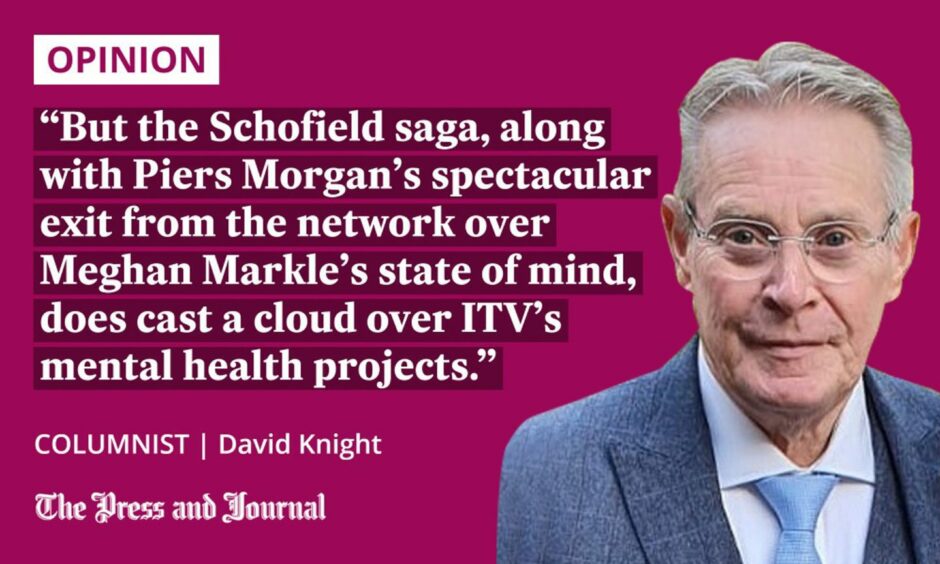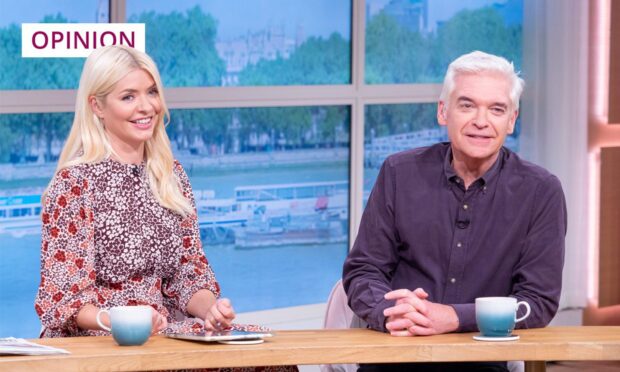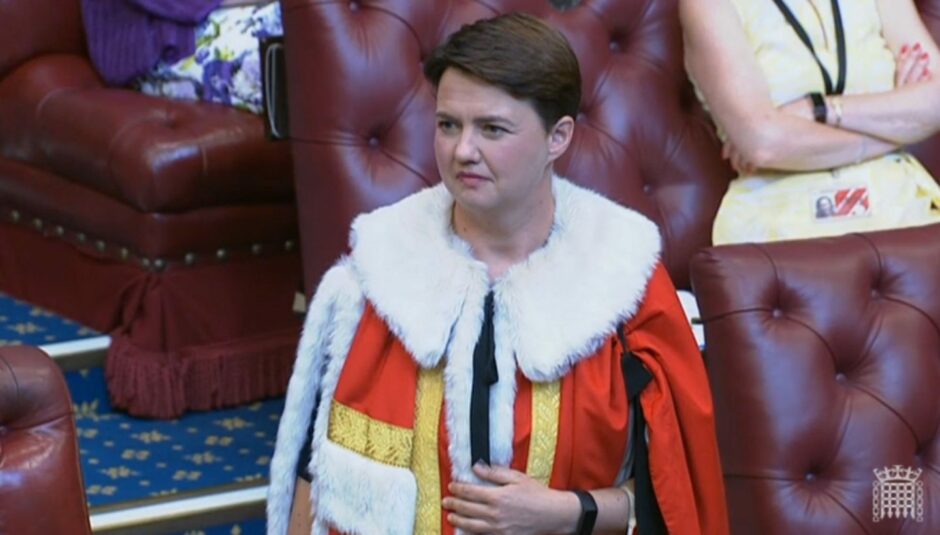I’ve been taking a closer than usual interest in daytime tv show This Morning and it feels like watching the orchestra playing on the Titanic.
A sinking sensation while they smile through gritted teeth.
The deck beneath them is not quite as sound as they might have thought.
It seems to prove something I suspected: the illusory nature of daytime television where all is sweetness and light is fragile at its core.
Foundations as solid as a souffle built on blancmange.
It’s obviously no different from any other workplace full of creative ambitious people with the same rivalries and weaknesses.
Where toxic cultures driven by narcissistic hypocrisy flourish because executives turn a blind eye or are simply out of touch.
For ITV bosses right now it’s not so much about This Morning, but this Wednesday morning.

That’s when MPs dish out a grilling about their handling of the Phillip Schofield scandal.
After an excruciating departure by the presenter over his shenanigans with a much younger male colleague whom he mentored.
The 61-year-old star shone like silver but is now irreparably tarnished.
There must be countless ordinary people who relate to the Schofield saga.
Junior staff or trainees who go to work every day – while This Morning is broadcasting no doubt – to be abused mentally by older, powerful colleagues.
They suffer in silence for fear of losing their jobs or careers.
Or there are those who wake up fearing that this is the day their lives are ruined forever.
This might be due to a sacking or something equally catastrophic like being convicted in a court case.
They don’t make the national headlines; they simply fade away or find a way to rebuild their lives and reputations.
Famous people have made TV comebacks after setbacks like Schofield
Even famous people have made a comeback after suffering horrendous setbacks like Schofield.
As a court reporter years ago it wasn’t uncommon for me to see the families of convicted people approach journalists afterwards to beg for their stories not to be published.
Their loved ones might kill themselves otherwise, they pleaded.
This always presented an awful dilemma as our legal system encourages the media to cover court cases for a very good reason: to ensure that justice is seen to be done.
This is a healthy outcome for any society built on transparency, but inevitably painful for some of those involved.
The suicide issue was clearly on Schofield’s mind when he was interviewed on tv.
For some like him, and tragic Love Island presenter Caroline Flack, the fall from great heights of public adoration into the depths of despair and ridicule induces such thoughts.
Especially when they feel they are being crucified by endless derision.
ITV has dug its own hole
There are certain ironies about this deep hole ITV has dug.
For a start, their dirty linen is being hung out in front of a committee of MPs to pick over on Wednesday.
Given MPs’ appalling record for all sorts of indiscretions, who are they to sit in judgment over anyone else?
I don’t mean to suggest anything untoward about individuals on the select committee, but MPs in general as a much-maligned entity.
The other double standard is that all this has been festering away on This Morning while ITV was championing its flagship mental health charity campaigns.
A few months ago it announced a new series of mental health initiatives after attracting a number of public figures to head them up.
These included former Scottish Tory leader Baroness Ruth Davidson.
Her role was to chair a committee on how the tv industry cares for participants in certain shows.
I have a lot of respect for her and not suggesting for a moment that she has anything to answer for by association.
Far from it; she must be horrified.
But the Schofield saga, along with Piers Morgan’s spectacular exit from the network over Meghan Markle’s state of mind, does cast a cloud over ITV’s mental health projects.
I’ve always thought there were hypocritical contradictions running through This Morning.
Little did we know Schofield was so conflicted and compromised by his personal life as he dished out relationship and moral advice to vulnerable callers.
I always found it particularly patronising how fabulously-rich contributors, some with royal connections, sat there smugly advising the rest of us how to live on frugal budgets during the cost of living crisis.
The final straw for me came after a belt-tightening segment when one of these very presenters appeared in a commercial break seconds later – encouraging viewers to buy £1000 top-of-the-range mobile phones.
This Morning executives have already ruffled the feathers of the powerful MPs’ committee.
Such as Scots editor Martin Frizell’s buffoon-like response when asked outside his door about the so-called toxic culture, “I’ll tell you what’s toxic – an aubergine.”
They say great power carries great responsibility; it also appears to carry great hypocrisy.
David Knight is the long-serving former deputy editor of The Press and Journal


Conversation